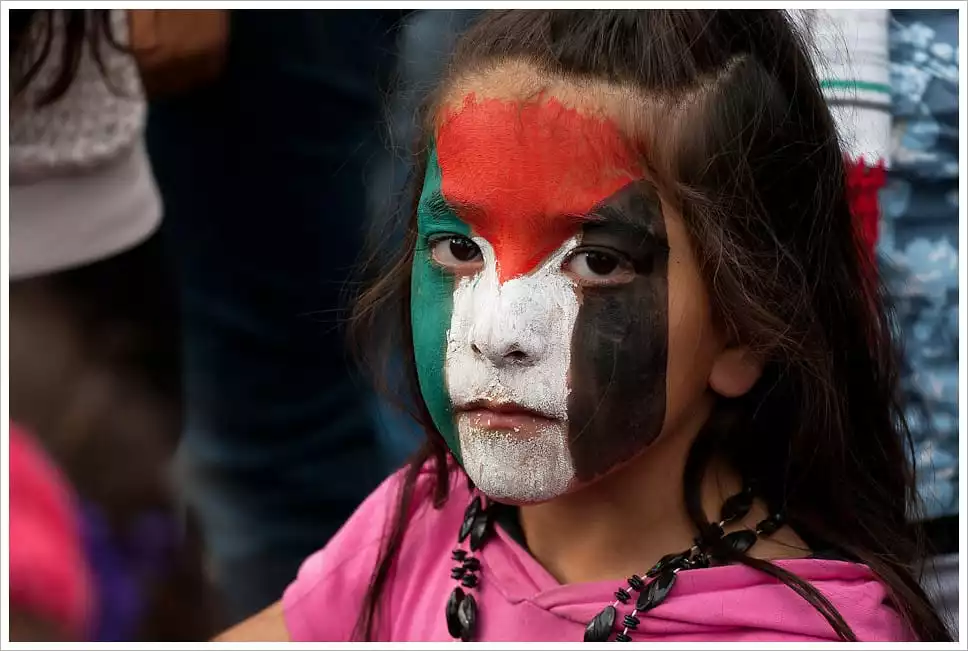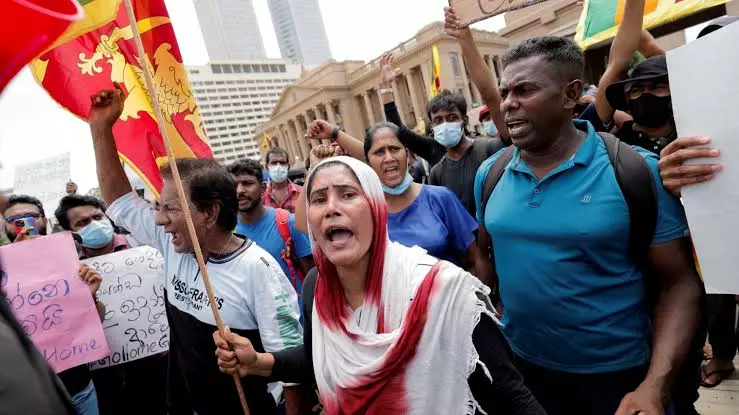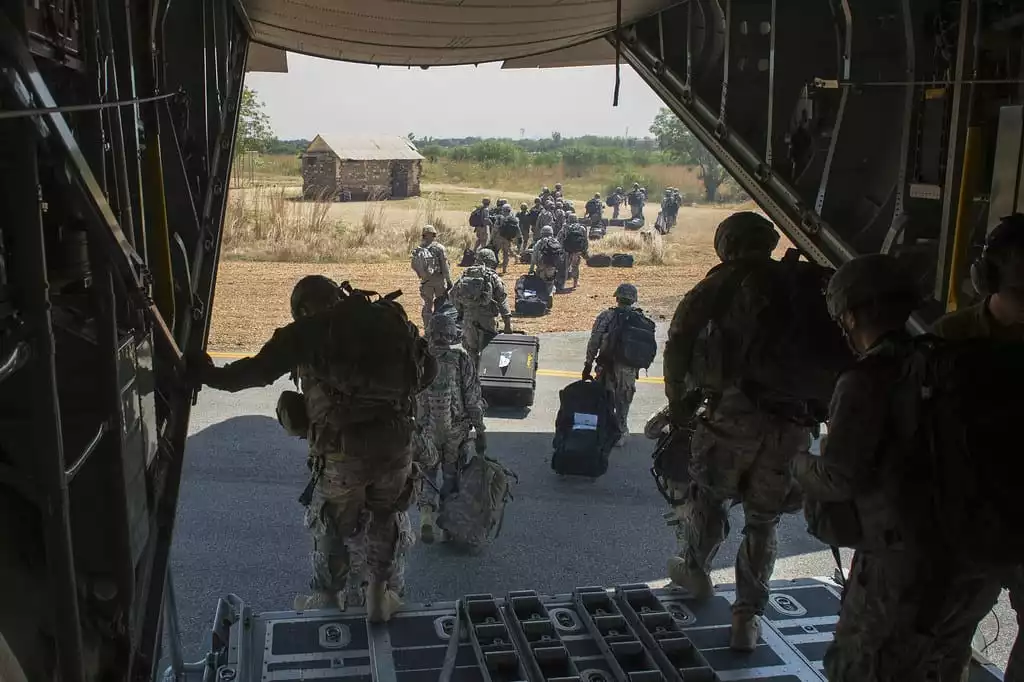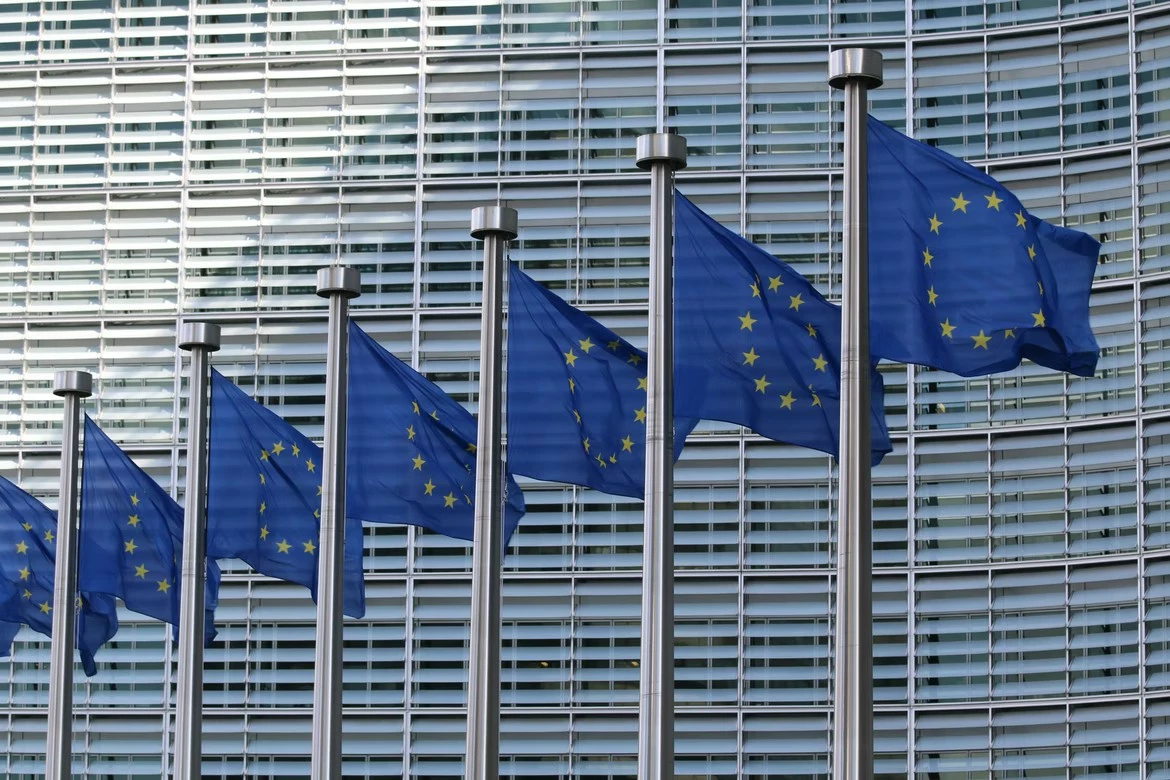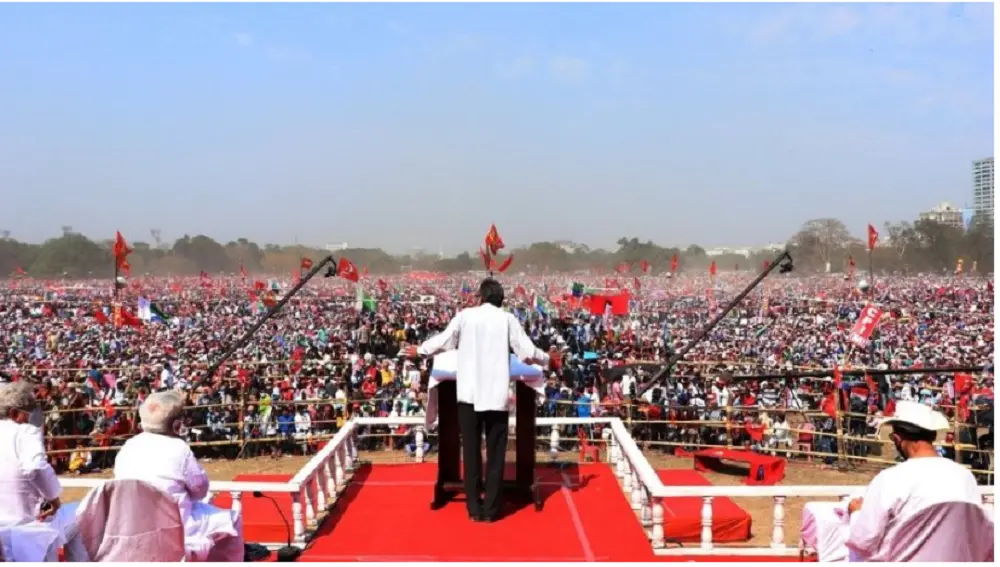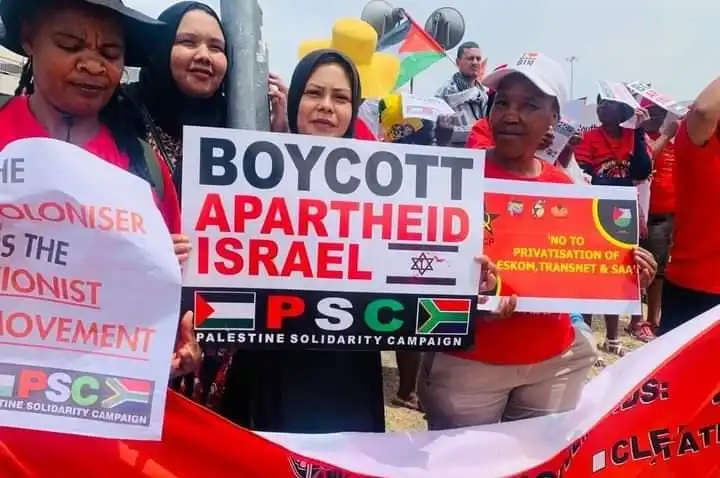In a podcast several days ago on YouTube former Senator from Minnesota Al Franken explained that Israel was the original Jewish homeland, but “of course, it wasn’t a perfect solution because the Palestinians happened to live there too.”
As Philip Weiss explains, Franken represents an older generation of American Jews, but his comments demonstrate a common tendency among commentators and politicians of any age to ignore 75 years of Palestinian resistance. Beginning with the Nakba (catastrophe) in ’48, when Zionist military forces destroyed at least 530 villages, massacred approximately 15,000 Palestinians, and drove at least 750,000 people from their homes, Palestinians have been united in their struggle.
Although his stance sounds anachronistic, representative of an older era, Franken’s podcast brings up several points that are relevant today. “It’s supposed to be a democracy, it’s supposed to be a Jewish democracy,” he says, “that’s the whole point– and right now we’re feeling like what Netanyahu is doing is ending that.”
In the end, Franken need not worry. “If we are to believe that Israel’s exclusivist and racially based ‘democracy’ is a democracy at all,” writes Ramzy Baroud, “then we are justified to also believe that Israel’s new government is neither less nor more democratic than the previous governments.”
“This is an indirect, if not clever form of whitewashing,” Baroud continues, as this stance assumes that Israel has always been a democracy, despite 75 years of discrimination and violence against the Palestinians, eventually culminating in the recent Nation-State Law which legitimizes Israel as an exclusively Jewish state. Despite demonstrations in Israel against the far-right government, Franken seems to be no problem with the way Palestinians have been treated in the past.
“It’s a curious but completely normal situation for the Zionist state,” Steven Salaita claims. “Palestinians are an ever-present burden on the entity and yet Palestinians are also studiously absent from Zionist notions of civic life.”
On Nakba Day, it is helpful to remember that the catastrophe is not an historical event, but rather, al-Nakba al-Mustamera, the ongoing Nakba, a reference to the past 75 years. According to Ilan Pappe, this means that the past exists in the present, part of a “contemporary historical chapter” (Foreword, Ramzy Baroud, The Last Earth, A Palestinian Story, 2018, p. xi) in the path towards liberation.
According to Hasan El-Hasan, al-Nakba was not one event, but rather a “continuous ongoing process of dispossession, Judaization and cleansing.” The goal has been the “conquest of all Palestine,” he writes, because the displacement of the original people from the land is at the core of Zionism.
At one point Franken’s guest brings up the normalization process as a solution, i.e., dialogue between Israelis and Palestinians as a path to peace. “You’ve got to stop the violence and the conflict,” David Miller says. “Then maybe you can create a transitional period that would allow success.”
Miller does not specify what he means by success. Most likely he does not mean an end to the Occupation, which is the only end game that will end the violence, though perhaps not the hate. For Palestinians, the goal is liberation, but as Salaita notes, liberating Palestine is a “process, forever in tension with forces of [the] oppression.”
As for the opposition, the language used by Combatants for Peace to promote their Israeli-Palestinian memorial ceremony reinforces the Zionist narrative that the two parties are equally responsible for the “conflict,” a term that Ramzy Baroud dispels. “Besieged, occupied people do not engage in a ‘conflict’ with their occupiers,” he observes. Instead, they are engaged in a liberation struggle that has grown stronger and more united over the past 75 years.
If liberation is a strategy, it is important to examine the language surrounding it. For example, since the Oslo Accords, the very term “resistance” was eradicated only to be replaced by rhetoric advocating “human rights,” “nonviolence,” and the two-state solution. The reality of the Occupation, under which there can be no human rights, was glossed over.
“The fact that Palestine was still an occupied country,” Baroud explains, “and that ‘state-building’ can only be achieved once ‘liberation’ was first secured, did not seem to matter to the ‘donor countries.’” These countries continued to push the illusion of the “peace process,” and to encourage that “security coordination” continue between the Palestinian Authority (PA) and the Zionist army, even though that meant that the PA would engage in arresting, torturing, and detaining members of the Palestinian resistance.

The “peace process,” Baroud contends, “wrought its own language,” which perhaps is slowly dying out. By dividing Palestinians in “moderates” and “extremists,” the former are valorized because they are willing to “make ‘painful compromises’” in order to attain peace. “Extremists,” on the other hand, use a wide variety of tactics, including armed resistance.
The language of liberation, used by so-called “extremists,” belongs only to the resistance. It is not written in response to a ready-made script written by the occupier; thus it does not seek to appease the colonizer or its cohorts around the world. It seeks not to backtrack by apologizing or defending its position.
Perceived by the Zionist opposition as a threat to their hegemonic hold on the narrative, such language was banned last year by the Berlin police when they barred all commemorations of the Nakba. According to Samidoun: Palestinian Prisoner Solidarity Network, Berlin police repeatedly label the local Palestinian community as “emotional,” an excuse they use for banning these public demonstrations.
The language used in these documents is a form of gaslighting, i.e., telling a group of people what they should be feeling about an experience as horrible as the Nakba. “The labeling of legitimate Palestinian anger and commitment,” adds Samidoun, as a “threat to public safety” constitutes an “abhorrent act of censorship,” a measure that also seeks to prevent solidarity with other struggles.
In particular, the German state “fears a broad anti-imperialist movement,” writes Samidoun, because of its interest in Germany’s own imperialist activity. “The German state collaborates with Turkey and Israel to fulfil its imperialist interests and please U.S. imperialism,” declares the Anti-Imperialist Front. “It wants to silence those who resist.”
At the present time, Germany continues to ban Palestinian events, including Palestinian Prisoners Day on April 17, a lead-up to a probable ban on organizing around Nakba Day on May 15. “Nakba Day, also called the Great Catastrophe, marks the beginning of the displacement of the Palestinian people by the Zionist occupation,” explains Young Struggle, a collective of revolutionary youth in Germany.
In a statement translated into English by Samidoun, the collective of young German activists clarifies that in the face of continuous repression, there is a flip-side to the Nakba; “this day is a day of struggle for the Palestinian liberation movement worldwide. It is our task as revolutionaries to work for the liberation of all oppressed people, including the Palestinian people.”
The possibility that Nakba demonstrations will again be banned in Germany is very real. As in the past, Palestinians are not deterred. Speaking against the German ban but also for the 75-year-long struggle against the Zionist state, Samidoun makes clear: “We and our collective movement will not allow such tactics to succeed.”
From April 28-30, 2023, the Masar Badil, the Palestinian Alternative Revolutionary Path Movement, held its first conference on Turtle Island (North America), specifically in Ottawa, Canada. Entitled “Palestine: Envisioning Liberation, Confronting Colonialism,” the gathering concluded with a statement that brings together all colonized people in their struggles for liberation.
By “striv[ing] to support the struggle of Arab women, liberate political prisoners from Arab prisons, defend the peoples of the region, their resources and wealth, extract their natural right to self-determination and restore their historical and civilizational role from the ocean to the Gulf,” the movement affirms its future goals in revolutionary language that does not seek to appease but rather confront the Zionist state.
In “Recasting the Nakba,” Ramzy Baroud reiterates that the Nakba is ongoing, affecting generations of Palestinians up until today. In response, he calls for “ongoing resistance” among people who are bonded by memory of this past event, an experience, he says, that has created a “state of mind” capable of forging liberation in the future.
Originally published in Palestine Chronicle.
Editor's Note:
The views and informations expressed in the article are solely those of the author and may or may not reflect the views of The International. We believe in providing a platform for a range of viewpoints from the left.
